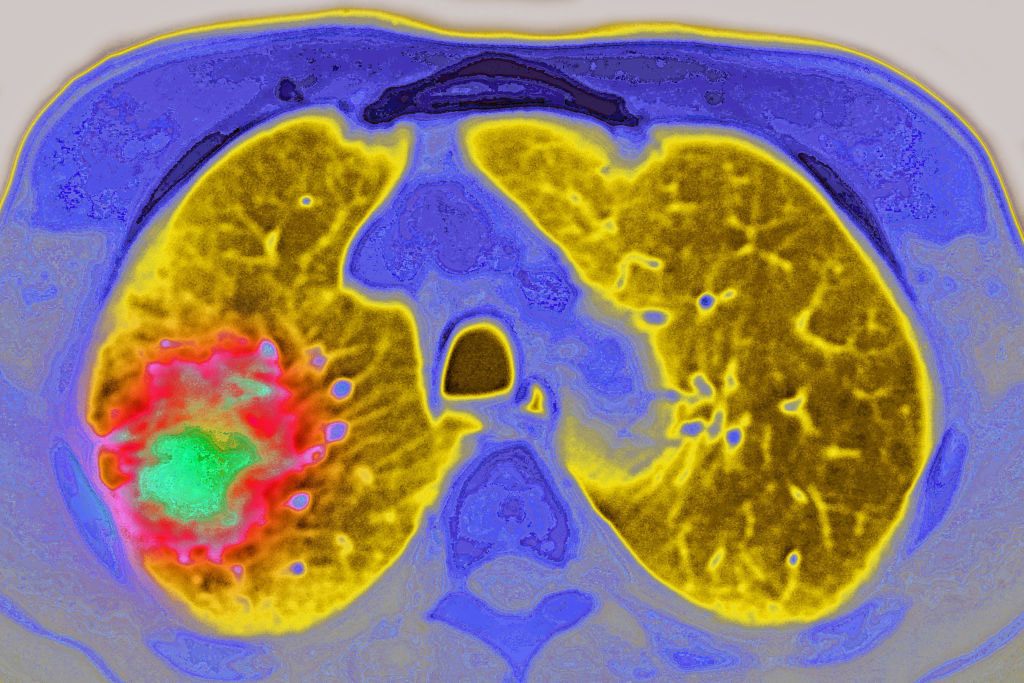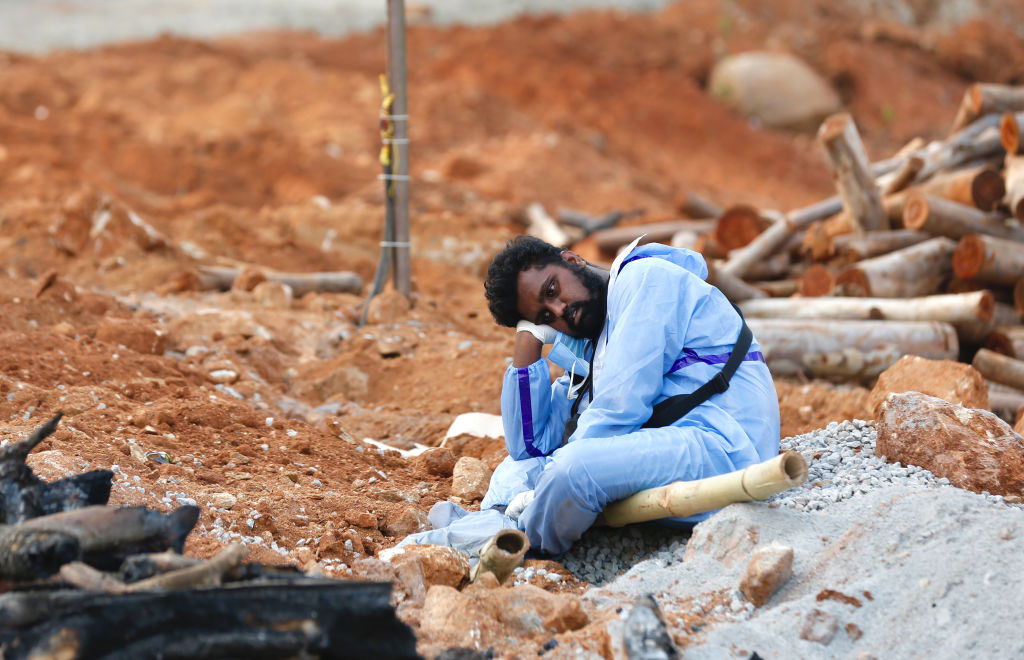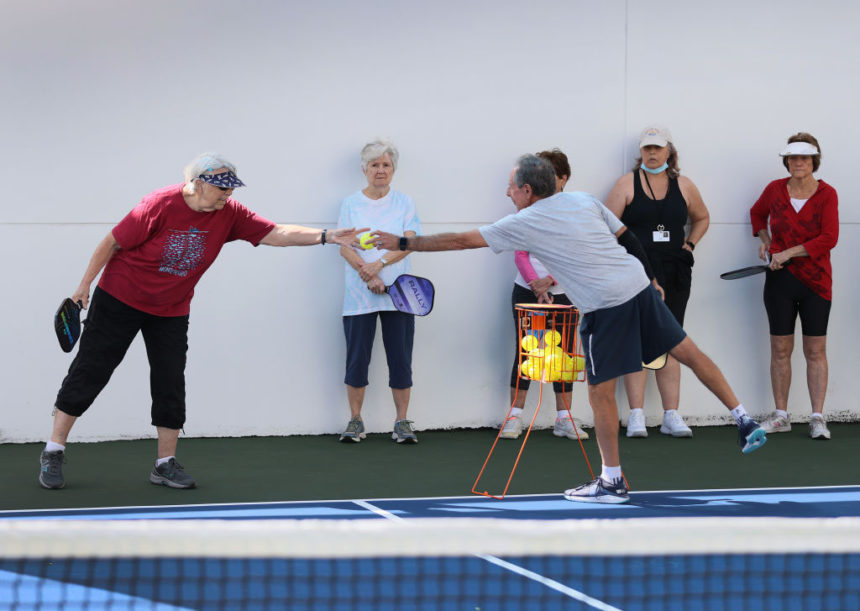In springtime a young public health official’s fancy turns to thoughts of … masklessness.
The CDC has lifted the veil, so to speak, and given fully vaccinated people license to breathe the air and see the smiles of others and mix and mingle as we did when rock was young. States will make their own rules, but CDC guidance is meant to be just that, a useful benchmark.
It’s probably easiest now to think about the situations where masks are still recommended for everyone, vaccinated or not. That list includes masking up at crowded outdoor events (concerts, sports events) and indoor places such as hair salons, restaurants, shopping centers, gyms, museums and movie theaters.
For most outdoor activities, including all forms of exercise, it’s okay for everyone to lose the mask. But if you are unvaccinated and hanging out in small outdoor gatherings, it’s best to mask up unless all those around you are well-vaccinated.gGot it? For details, see the CDC update and, even better, a nifty color-coded infographic sorting out indoor and outdoor activities, mask or no mask, for the vaccinated and unvaccinated.
Seriously, the best thing to do is to get vaccinated not only to protect your life but to simplify it as well.
As you’ll see in this edition of Coronavirus Briefing, the CDC has also eased restrictions in nursing homes and other care facilities so that residents can have dinner together and welcome visitors and exhale again in a way that has literally been under wraps for more than a year.
“It’s the return of freedom,” Mike Saag, an infectious disease specialist in Alabama, told the AP, “It’s the return of us being able to do normal activities again. We’re not there yet, but we’re on the exit ramp. And that’s a beautiful thing.”
This welcome news arrived just as I learned a new CDC word for mask. I had picked up on “facial covering,” but have you heard of “source control?” Per CDC, “Source control refers to the use of masks to cover a person’s mouth and nose and to help reduce the spread of large respiratory droplets to others when the person talks, sneezes, or coughs.”
Channeling Shakespeare and Gertrude Stein, a mask by any other name is still a mask.
This edition of Coronavirus Briefing is 2,347 words long and will take you six minutes to read.
Lives reclaimed
Step by step, day by day, mask by mask, we’re inching back toward something resembling normal.
· Fully vaccinated residents of nursing homes and assisted living centers can resume communal dining and group activities without wearing a mask or keeping a social distance, the CDC has determined. But if the group includes unvaccinated people, everyone should be masked. Fully vaccinated residents can also enjoy the company of fully vaccinated visitors, as long as they are in their own room or a visitation room without unvaccinated folks. James M. Berklan, Danielle Brown and Kimberly Bonvissuto offer details in McKnight’s Long-Term Care News and Senior Living.
· The CDC guidance is relaxed for fully vaccinated long-term care staff as well. They need to wear their masks on the job, but it’s okay to shed the mask and share dining facilities, socialize in break rooms and conduct in-person meetings with other fully vaccinated colleagues. The rules change when the unvaccinated enter the picture, or the room.
· Pollster Civic Science reports that nearly half (49%) of the fully vaccinated say they have begun spending time indoors with other vaccinated people who are not part of their household. Another 22% said “No, but I will soon” while 10% said “No, and I won’t for a while.” We’re all finding our way.
· The cruise industry wants to reclaim the narrative that “a cruise can be safe and fun” and is betting that vaccination will be a rising tide that floats their boats, Chris Daniels notes in PRWeek. Norwegian Cruise Line has produced a series of five videos, live streaming and on demand, titled “Embark,” which showcase the company’s efforts to enhance health and safety protocols in the choppy seas of the pandemic era.
· The 27-member European Union is getting ready to welcome fully vaccinated foreign travelers, the New York Times reports. Some type of vaccination verification will be needed; happily, the four vaccines currently authorized in the E.U. include all three used in the U.S. —Pfizer, Moderna, and J&J—plus AstraZeneca.
· It’s essential to create a supportive environment for employees returning to the workplace, says Lisa Seagroatt in People Management. Seagroatt, founder and managing director of HR Fit for Purpose, says “It’s going to be odd, challenging and difficult for everyone.” She advises HR professionals to consult with all stakeholders to develop a roadmap for return and to pay attention to a wide variety of specific individual concerns.
· Reopening the office requires a touch of practical psychology, Jeremy Hazlehurst suggests in Management Today. If the hybrid model, soon to become the prevailing trend, is to work smoothly, there will need to be compromises between those who prefer to work from home and those who crave the camaraderie of the office. New employees in particular will need informal face-to-face interactions to learn how the organization functions and understand its culture.
· Promoted events of the near future will be hybrid experiences tapping into the energies and enthusiasms of in-person and virtual attendees, Dax Callner writes in Campaign. There are scheduling logistics to manage, as a large audience of digital event-goers may span several time zones. Creative approaches will make it easier for attendees to interact with speakers and network with each other, no matter where they happen to be located.
The Takeaway:
A hybrid world will be the mother of much invention.

Lives disrupted
The tentacles of a pandemic are long and twisting.
· Intimate partner violence has been described as the unseen pandemic within the pandemic. In Psychiatry Advisor, Tori Rodriguez consults with four experts and explores some disturbing trends. In one recent study, the number of patients reporting any type of partner aggression in the early phase of the pandemic was almost halved when compared to the previous 3 years, but physical cases nearly doubled, with a five-fold increase in severe and a four-fold increase in very severe injuries.
· The pandemic has disrupted the diagnosis and treatment of lung cancer, Katarina Zimmer reports in Cancer Therapy Advisor. Clinicians are concerned that new cases of lung cancer “are going undiagnosed or are caught at more advanced stages, partly due to delays in diagnostic procedures and the reluctance of people with early symptoms to seek medical care out of fear of contracting the virus.”
· Burned out by the pandemic, 3 in 10 health workers are on the cusp of quitting and seeking a different career, according to a Washington Post/Kaiser Family Foundation poll. Overall, 55% of those surveyed said they feel burned out about going to their jobs every day, a sentiment that was strongest in the youngest (69% of 18- to 29-year-olds) and lowest in the oldest (27% of those 65+).
· A free, confidential Physician Support Line, designed to help physicians and medical students cope with personal and professional stresses, has received more than 2,500 calls in the past year. Philadelphia psychiatrist Mona Masood set it up after seeing too many anguished posts from colleagues on social media. The support line, 1-888-409-0141, is staffed by volunteer psychiatrists and is available from 8 AM to 1 AM Eastern Time seven days a week.
The Takeaway:
The casualty toll of the pandemic includes the wounded.

The never-ending story
COVID-19 is not going away anytime soon. Prevention and treatment strategies will need to keep evolving.
· Lest we think the tide is ebbing, worldwide cases of COVID-19 have increased for the ninth straight week and deaths for the sixth straight week, the World Health Organization announced at the beginning of World Immunization Week.
· Home health advocates believe that COVID long haulers, who may suffer for months from brain fog, nausea, blurry vision, fatigue, and hearing loss, could benefit enormously from palliative care. In McKnight’s Home Care Daily, Diane Eastabrook describes a possible expansion of Medicare’s palliative care benefit to include patients with a variety of chronic illnesses. Possible advantages: higher quality of care, fewer hospitalizations, better pain management.
· Pfizer CEO Albert Bourla hopes the company’s experimental oral drug to treat COVID-19 at the first sign of illness will be available by the end of the year. The drug, a protease inhibitor designed to be used on an outpatient basis, completed early trials last month and more are in progress. Pfizer also has in development an IV protease inhibitor for use in hospitalized patients. As a class, protease inhibitors are used to treat viral infections including HIV and hepatitis C.
· What works and what doesn’t work in treating mild, moderate or severe COVID-19 is under constant scrutiny. The National Institutes of Health just completed another update of treatment guidelines. Among other findings, the NIH panel is not seeing enough evidence either for or against using two familiar drugs, the anti-inflammatory colchicine and antidepressant fluvoxamine, to treat COVID-19. On the other hand, the panel recommends the IL-6 inhibitor tocilizumab in combination with dexamethasone for hospitalized COVID-19 patients who are experiencing rapid respiratory decompensation.
· Nursing homes have a constantly shifting population and thus must be vigilant about vaccinating new residents and staff, Kimberly Marselas notes in McKnight’s Long-Term Care News. Now that a federally run vaccination effort has ended, facilities must make their own arrangements, and not all have put succession plans in place. In Washington state, Marselas reports, vaccination rates of residents have slipped from 75% or 85% down to 60%.
· How well do COVID-19 vaccines work in patients with underlying diseases? It’s an ongoing question, as many of these patients were not included in vaccine clinical trials. In people with chronic inflammatory disease, the mRNA vaccines (Pfizer and Moderna) appear to be safe and immunogenic without inducing flares of inflammation, Amit Akirov writes in Rheumatology Advisor.
· Kidney transplant patients, on the other hand, tend to have a less robust response to vaccines in general due to immunosuppression, and COVID-19 appears to be no exception. A recent study reports that most kidney transplant recipients had a weak antibody response to the first dose of Moderna vaccine, John Schieszer reports in Renal & Urology News.
· The immune response to COVID-19 vaccine also appears to be diminished in patients with blood cancers such as leukemia and multiple myeloma, based on recent studies. However, the vaccine continues to be strongly recommended for blood cancer patients, who are at high risk for severe COVID-19 infection. The Leukemia & Lymphoma Society has a set of FAQs for patients and caregivers.
The Takeaway:
We learn because we must. As Ben Franklin said, “An investment in knowledge pays the best interest.” Even better: “We are all born ignorant but one must work hard to remain stupid.”
The rest
· In the last week of April 1954, dozens of second graders lined up outside Franklin Sherman Elementary School in McLean, VA, to kick off the field trials of the new Salk polio vaccine. A year later, after trials in the U.S., Canada, and Finland, the vaccine was declared safe and effective. Defeating the disease was a long haul; the U.S. wasn’t declared polio-free until 1979, and the effort to eradicate it globally continues today.
· Our dog, a 10-year-old chocolate Lab rescue with diabetes, is sweet and loving and has a modest skill set that includes “paw” and of course “eat” (no common needed there), but she is not capable of sniffing out SARS-CoV-2 infection. She leaves that to those other dogs for whom future gainful employment is likely.
· If you don’t like the way you look on video conference calls, you could have Zoom dysmorphia, a term newly coined by dermatologists and plastic surgeons who are hearing from lots of patients unsettled by what they see on screen. A recent editorial in the journal Facial Plastic Surgery & Aesthetic Medicine notes that patients are particularly concerned with acne and wrinkles. Seeing an unedited version of yourself in living color “may have drastic effects on body dissatisfaction and desire to seek cosmetic procedures,” the editorial stated. If it’s of any comfort, it’s not really you. Zoom distorts reality by giving you a more rounded face, wider set eyes and broader nose. And Mr. Rogers loves you just the way you are.
· The first space mission with an all-civilian crew, coming at you from SpaceX and scheduled to launch September 15, is inspiring on many fronts—and in fact is named Inspiration4. In Campaign, Sabrina Sanchez explains how the marketing agency Known developed the brand campaign, featuring a Super Bowl ad along with a major fundraising effort for St. Jude Children’s Research Hospital that has raised $115 million toward its $200 million goal. Most inspiring to us: one of the crew members is Hayley Arceneaux, 29, a physician assistant at St Jude’s who was treated there for bone cancer as a 10-year-old. She’ll be the youngest astronaut ever.
· Remember those line graphs about stopping the spread and flattening the curve? We’re now seeing notable drops in COVID-19 cases and deaths in the U.S. (emphatically not true of the rest of the world). New cases dropped 16% last week to about 409,000, the biggest percentage drop in weekly new cases since February, per Reuters. Deaths fell 4% to 4,972 in the week ending April 25, dropping below 5,000 for the first time since last October.
… and some songs
· Perfect Symphony, Ed Sheeran, Andrea Bocelli
· Back Together Again, Roberta Flack & Donny Hathaway
· Together Again, Emmylou Harris
That’s all for this week, and for April. Where did it go? See you back here next Wednesday, the Cinco de Mayo, for another edition of the Haymarket Vaccine Project Newsletter. Enjoy the weekend, stay safe, be well. We love you just the way you are.








